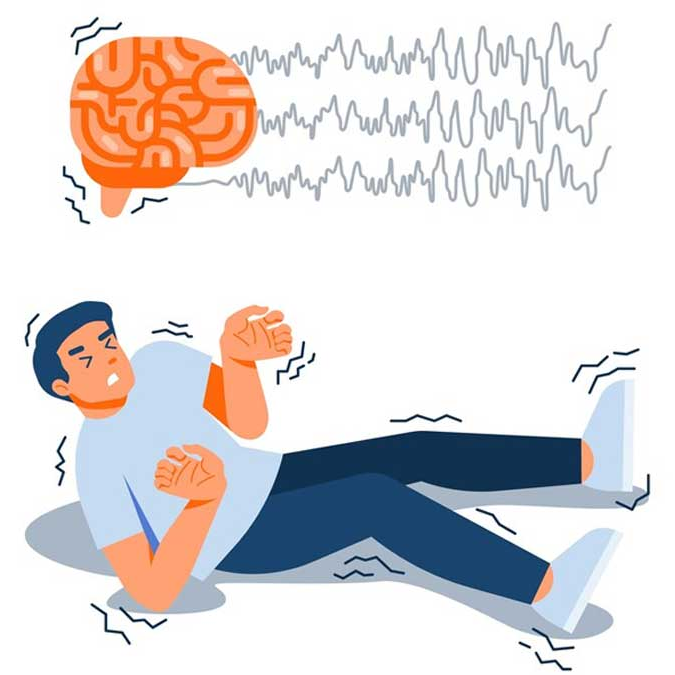
Epilepsy
What is Epilepsy?
Epilepsy is a neurological disorder characterized by recurrent, unprovoked seizures. These seizures result from abnormal electrical activity in the brain, leading to temporary changes in behavior, movement, sensation, or consciousness.
Having a single seizure doesn’t mean you have epilepsy. Epilepsy is diagnosed if you’ve had at least two unprovoked seizures at least 24 hours apart. Unprovoked seizures don’t have a clear cause.

Causes of Epilepsy
Epilepsy can develop due to various factors, including:
Genetic factors
Family history may increase the risk.
Brain injuries
Trauma from accidents or falls can lead to epilepsy.
Stroke
A leading cause of epilepsy in older adults.
Infections
Brain infections like meningitis or encephalitis.
Developmental disorders
Conditions like autism or neurofibromatosis.
Brain tumors
Can disrupt normal brain function.
Who is at Risk?
Epilepsy can affect anyone, but the risk is higher in:
Children
Especially those with birth complications.
Elderly
Stroke and neurodegenerative diseases increase the risk.
People with head injuries
Accidents, sports injuries, or violence.
Individuals with neurological disorders
Alzheimer’s, autism, or brain infections.
Those with a family history
Genetic predisposition plays a role.
Therapies for Epilepsy
Treatments to control epilepsy include anti-seizure medications, special diets (usually in addition to anti-seizure medications) and surgery.
Anti-Seizure Medications
• Anti-seizure medication treatment is individualized.
• Anti-seizure medications can control seizures in about 60% to 70% of people with epilepsy.
• Your healthcare provider may try one or more medications, doses of medications or a combination of medications to find what works best to control your seizures.
Epilepsy Surgery
It can be a safe and effective treatment option when more than two anti-seizure medication trials fail to control your seizures.
Vagus Nerve Stimulation (VNS)
- A device implanted under the skin that sends electrical impulses to the brain via the vagus nerve.
Responsive Neurostimulation (RNS)
- A brain implant detects and stops seizures before they start.
Deep Brain Stimulation (DBS)
- Electrodes placed in the brain send electrical signals to control seizures.
Diet therapy
Diets are mostly recommended for children where medication was not effective and who aren’t candidates for surgery.
- The ketogenic diet and the modified Atkins diet — diets high in fat, moderate in protein and low in carbohydrates — are the two most common diets sometimes recommended for people with epilepsy.



